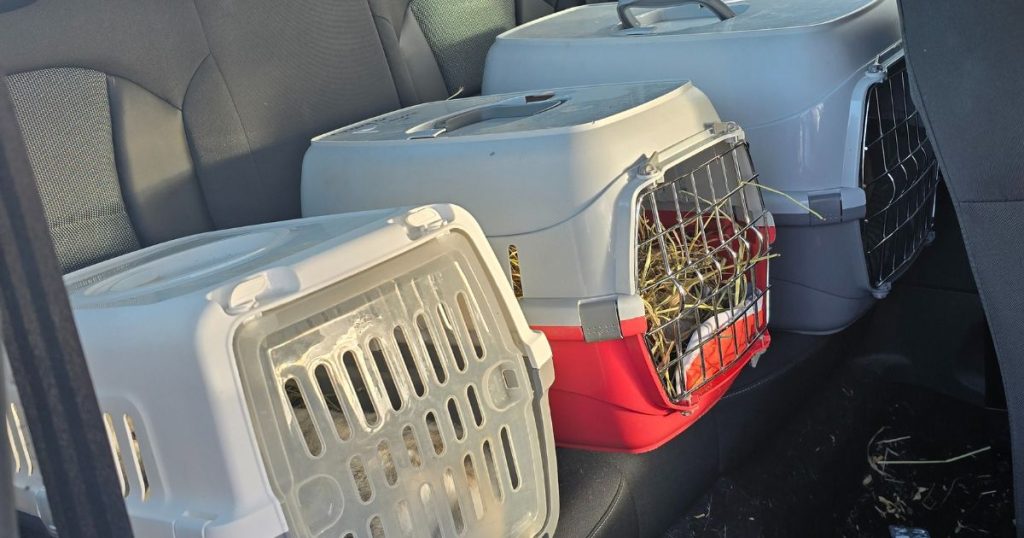We all know that prey animals are generally happiest when in their own environments, however sometimes it can be necessary to travel with them. Travelling to the vets, to boarding, to be bonded or to move home or another safe space really are the only times that prey animals should be transported away from their comfortable environments.
Prey animals generally do not enjoy travelling in vehicles due to strange smells, vibrations, and the inability to escape, which can make the experience very scary for them. By taking certain measures, we can make travelling as comfortable for them as possible. Below we’re discussing some considerations you may like to make when travelling with your small animals:
Creating a comfortable travel environment
Small animals can find it difficult to find their footing on hard surfaces, so be sure to line carriers with a blanket, newspaper or a pee pad, to help them stay upright and feel secure.
When travelling by car, having a radio on low with soothing music can help to calm prey animals during the journey. Additionally, avoid travelling during the hottest part of the day to prevent overheating and cool the car before travelling using air conditioning. Remove any strong air fresheners as their sense of smell is far more sensitive than that of humans.
Using a calming spray such as pet remedy can help to reduce feelings of unease in prey animals, you can spray it on a blanket or outside the carrier (never spray directly onto the animal). You can also wipe hard cases with pet remedy wipes.
If you are travelling with your companion animal on public transport, consider covering their carrier with a blanket to create a safe space.
Choosing the right carrier – size and material
There are many types of carriers available on the market now. Make sure that the one you buy is big enough for all your animals to travel in comfortably, they should be able to lie down and have some room for movement. Importantly, the carrier must be suitable sized for your whole group of animals – companions should never be left behind.
We advise choosing a hard case carrier, as rabbits in particular may chew fabric carriers. A carrier with a lid that can open at the top may be more convenient for vet visits. You also need to consider your own comfort and ability to carry the carrier; if you have a large group of animals who are quite heavy, you may want to consider a carrier with wheels for example.
Feeding and hydration
Fill the carrier with hay and scatter some calming forage. This allows the animals to have access to hay for snacking on, and guinea pigs in particular may like to hide in a pile of hay during their journey.
If your animals drink from water bowls, you can offer water when stopping off on long journeys. For animals who drink from bottles, you can often attach one to the carrier. Including some greens in the carrier can be beneficial as they are highly palatable and contain water, assisting with hydration if your rabbits or guinea pigs choose to not drink water on your journey.
Familiar items
Adding a toy or blanket from home can be reassuring, as familiar smells can provide comfort. Bonded companions should always travel together, not only to stop their bond from breaking down by being separated, but for comfort and reassurance.
Emergency preparedness
Plan for the worst by having a small medical kit on hand. A syringe can be particularly useful for administering food or water if the animal does not eat or drink voluntarily.
By following these guidelines, you can help ensure a stress-free and comfortable journey for your prey animals. Proper planning and consideration of their needs can make all the difference in their travel experience.
See the recommended products on our Amazon shopfront for travelling with small animals.





